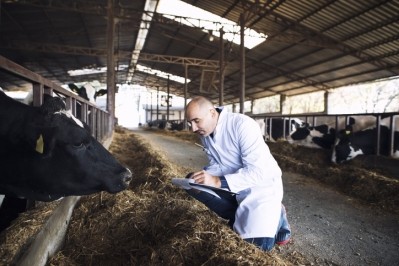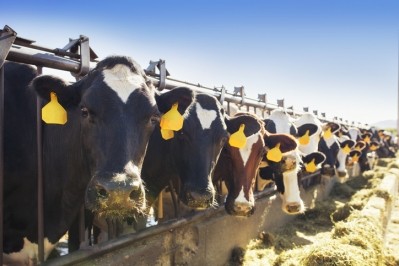Microbiome research stops methane in its tract

Outlining APC Microbiome Ireland’s Strategic Vision 2021-2026 in relation to animal health and nutrition, Dr Paul Ross, director of the research center, told FeedNavigator that one of its aims was to grow its portfolio of high-potential spin-out companies across a range of microbiome fields.
“From an animal feed and nutrition perspective, the microbiome is a relatively untapped and underdeveloped area. Yet the diet animals are given affects their microbiome and that has an effect on their health, wellness and productivity. As a center we are trying to integrate the formation of start-up companies as a vehicle for getting new technologies out to the marketplace,” Dr Paul Ross told FeedNavigator.
In its five year strategy vision, the institute identifies several focus areas for scientific advancement. These include the development of functional foods, medical foods and live biotherapeutics to improve human and animal health; as well as solutions to microbiome-based challenges such as anti-microbial resistance, pathogen persistence and methane production.
Expanding on this last challenge, Dr Ross said the center is investigating how probiotics can manipulate the rumen to reduce methane production in cows.
“A lot of our work involves examining how different bacteria compete with each other in the microbiome. There are all these bacteria competing for food in the gut, and they produce anti-microbials to kill each other. Our scientists conducted a very large screening program in which they evaluated lactic acid bacteria for their ability to kill methane-producing bacteria.”
The EU-funded project, which is named Methlab, is being led by Prof Catherine Stanton, principal investigator at APC Microbiome Ireland based at Teagasc Moorepark, with partners in Ireland as well as in France, The Netherlands and New Zealand.
Rumen bacteria fight it out
Lactic acid bacteria are already commonly used by the feed industry as supplements to increase production and improve animal health. The Methlab project, however, has characterized and identified those lactic acid bacteria that are capable of targeting the rumen bacteria that produce methane - so called methanogens.
Following the screening phase, Dr Ross said that the researchers had established “a league table of methanogens”.
The next phase, he said, was moving the investigation in vivo through animal trials at the University of Wageningen in The Netherlands.
“We made silage with two of those strains and fed it to cows. At the moment we are evaluating how it affected their productivity and methane production,” he said.
Whilst no results are available yet, Dr Ross said: “Our hypothesis is that we have this bank of strains, all of which are potentially probiotics that could be added to animal feeds to kill the methane produced in the rumen, causing less belching.”
Methlab is just one example of the research that is being conducted at the center, which brings together over 300 scientists and clinicians with the common goal of “translating microbiome science to improve health, wellbeing and economic prosperity”.
Power of five
Live 5 is another APC-led research project that has contributed to knowledge around pathogen persistence and the microbiome.
“Our researchers created a five-strain probiotic mix for targeting salmonella reduction in pigs. They observed that animals who were administered the probiotic bacteria were less susceptible to infection with salmonella,” said Dr Ross.
APC is looking for a commercial partner to bring this probiotic combination to the marketplace and Dr Ross thinks that the timing could be right given the drive for antibiotic alternatives in feed.
“We invest quite a lot of resource in studying the effects of antibiotics on the microbiome and how that affects performance and health,” he said.
Focus on fibers
In other animal health and nutrition related research, APC Microbiome scientists are using a pig model to study how prebiotic fibers and probiotic bacteria can potentially reverse metabolic syndrome.
“We are really interested in fiber, how it affects the microbiome and what organisms respond to it,” noted Dr Ross.
















